Abstract
Multilocus enzyme electrophoresis was used to examine the relatedness of 52 isolates of Clavibacter toxicus, the agent of annual ryegrass toxicity. These included 37 Western Australian (WA) field isolates sampled in 3 distinct locations over a 2-year period, and 15 isolates sampled from 6 different host plant species in 3 states in Australia over approximately 8 years. Seventeen reference strains for the related genera Curtobacterium, Rhodococcus and Arthrobacter were examined for comparison. The 69 isolates were divided into 29 electrophoretic types (ETs), separated by genetic distances of 0.06 to 0.81. The C. toxicus isolates fell into 12 ETs, 11 of which formed a tightly clustered group separated by a genetic distance of 0.23 or less. Thirty-one of the WA field isolates of C. toxicus fell into a single ET, and four into another ET. Clavibacter toxicus therefore formed a closely related group which was genetically distinct from the other plant pathogenic species, and a dominant widely disseminated strain of the species was identified in WA.
Full text
PDF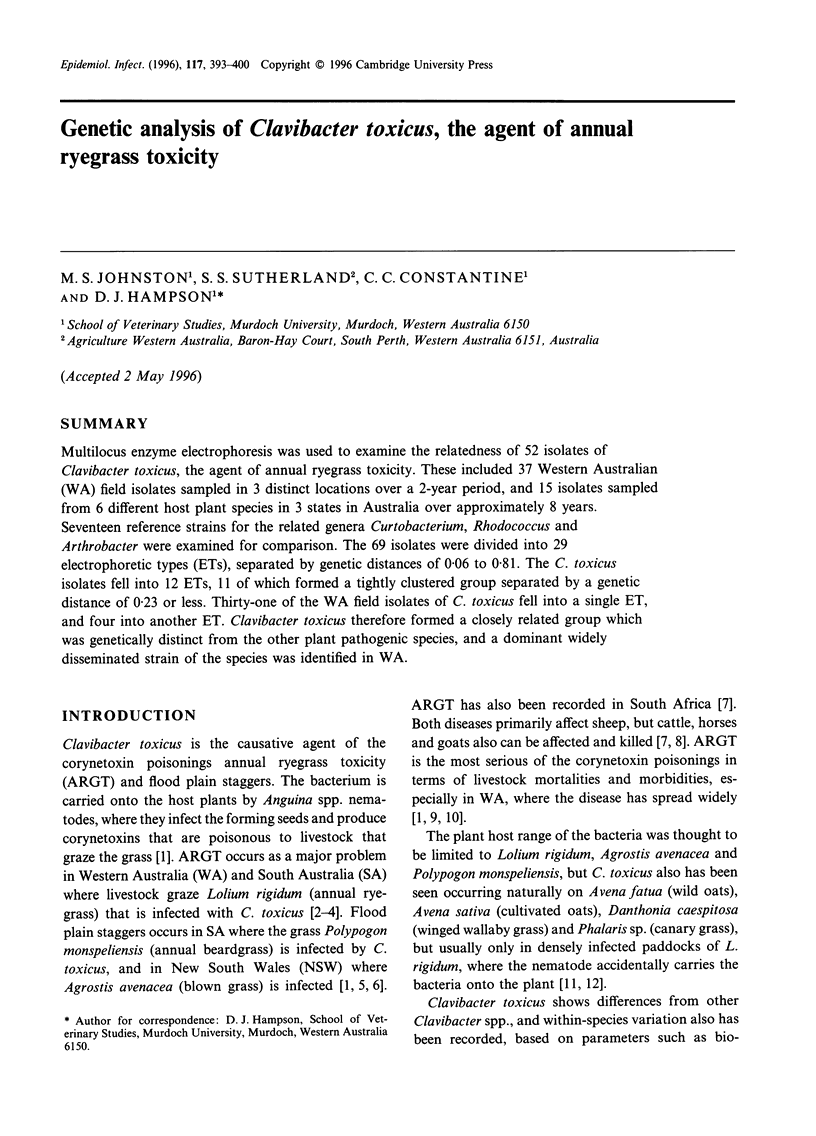
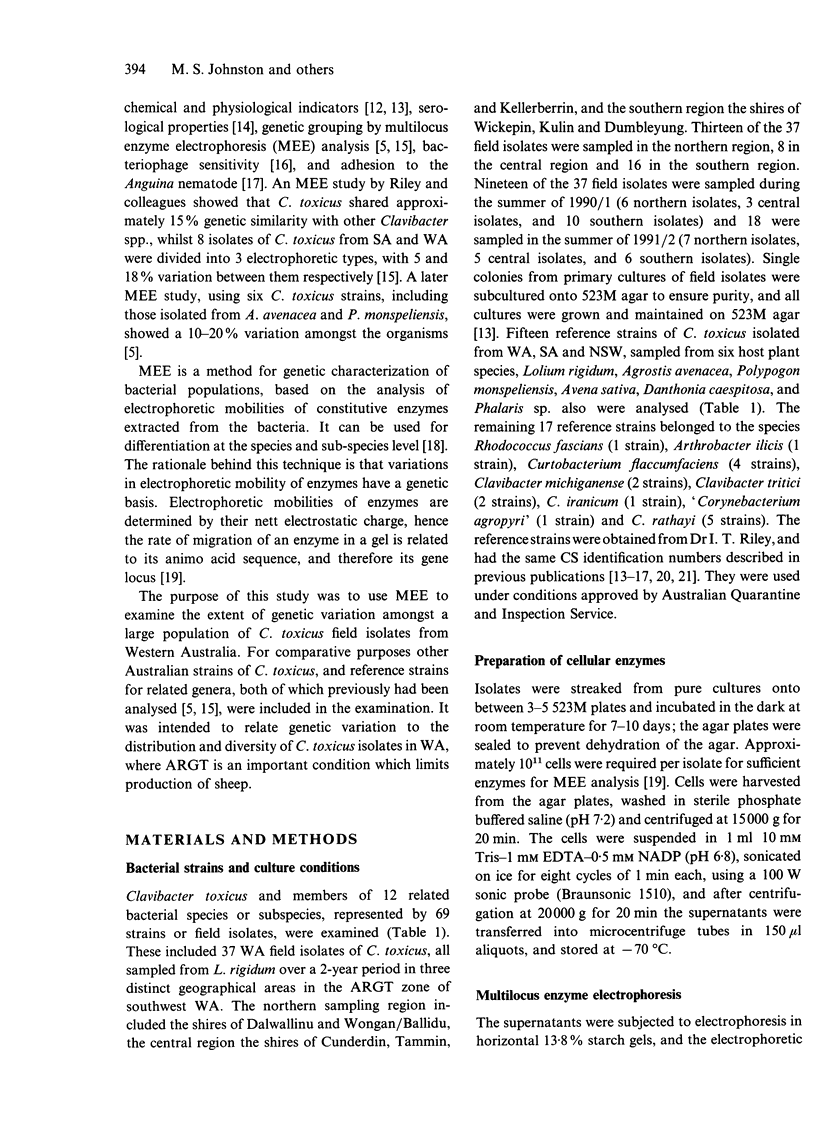
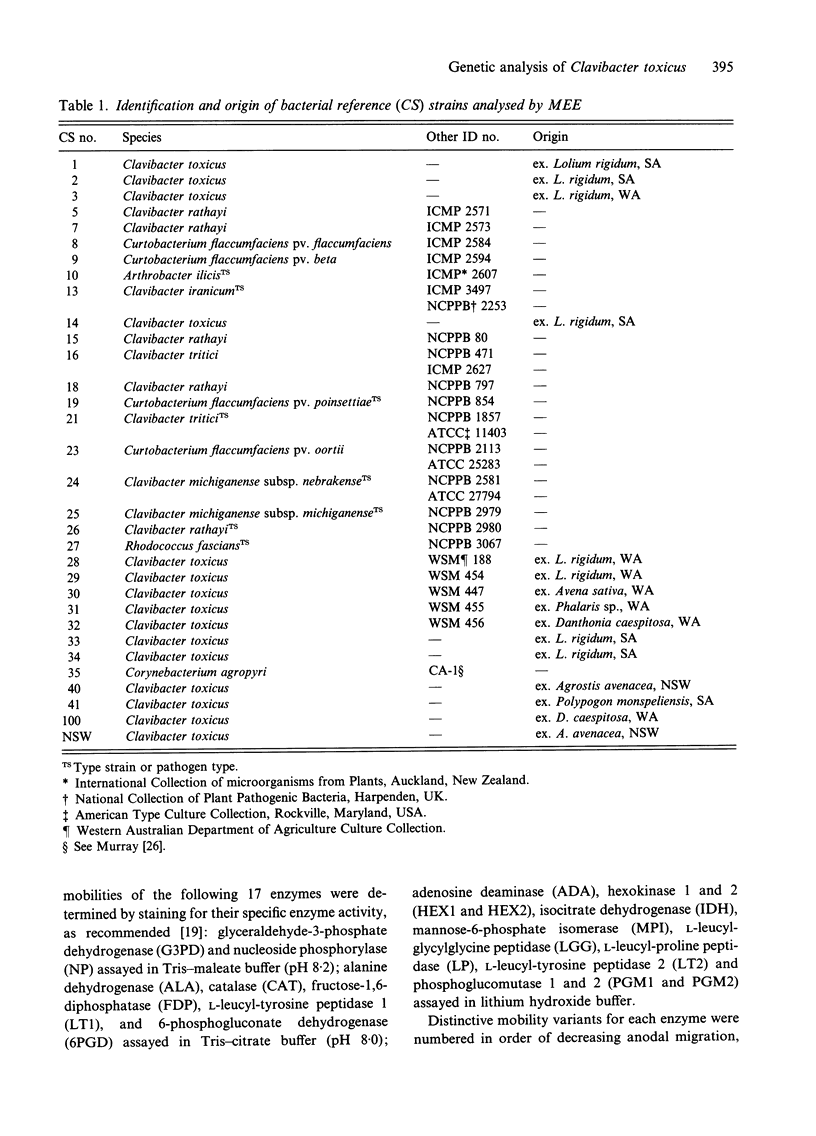
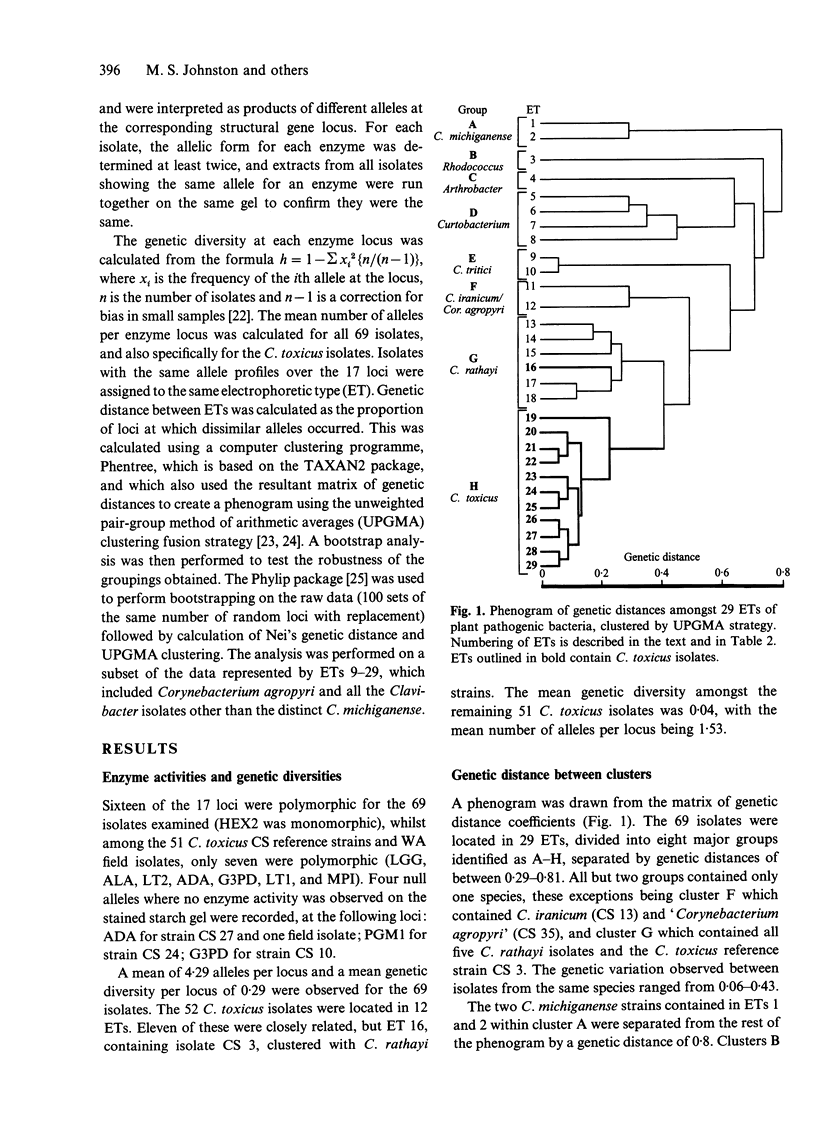
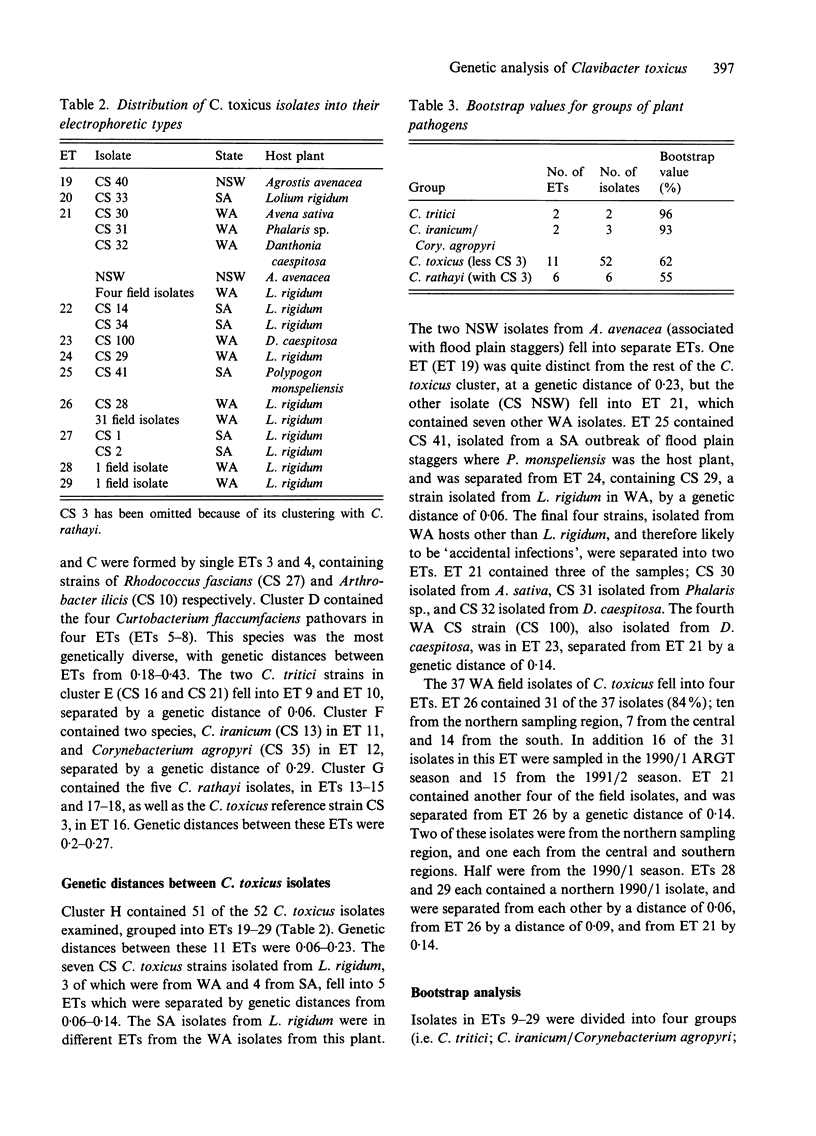
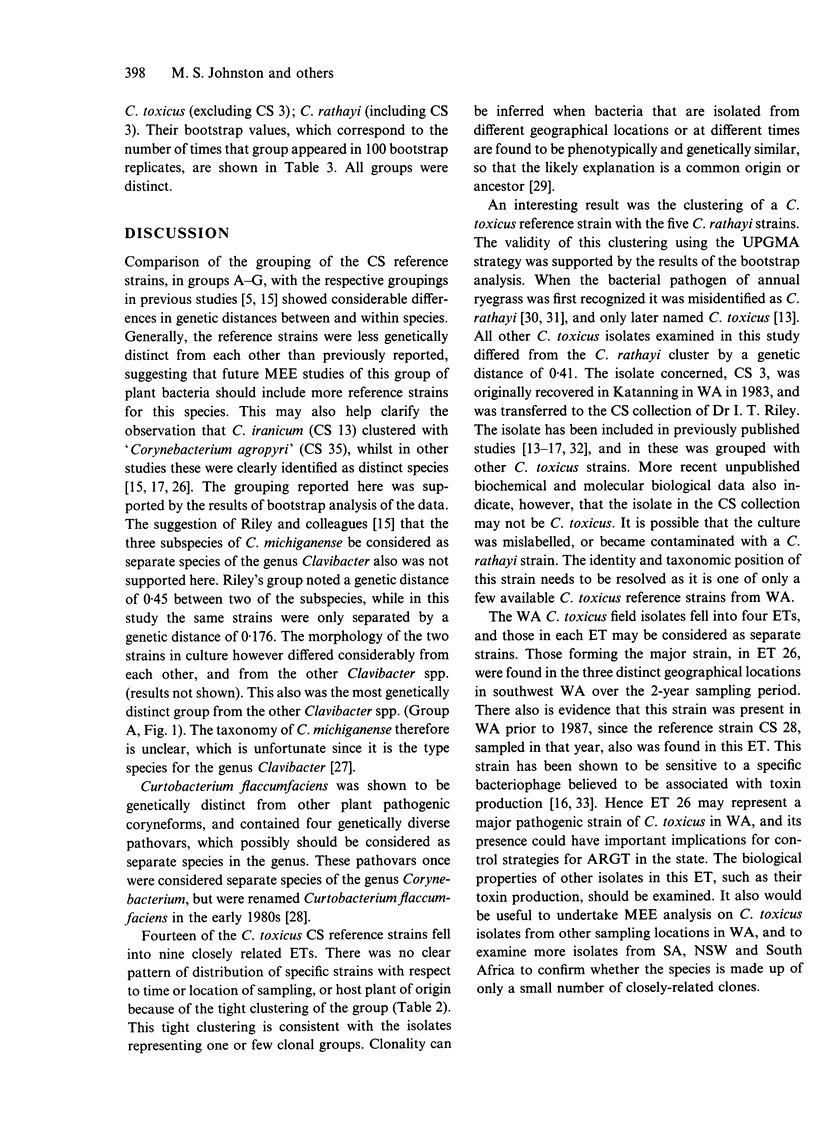
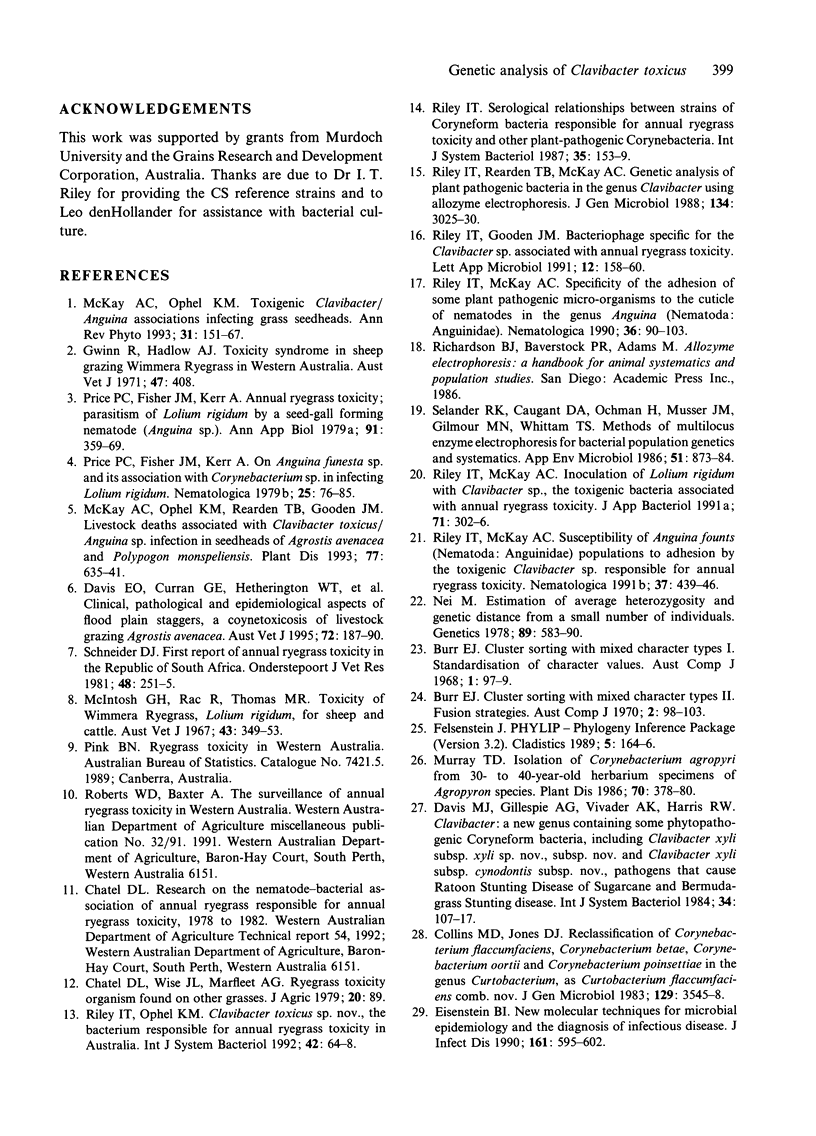
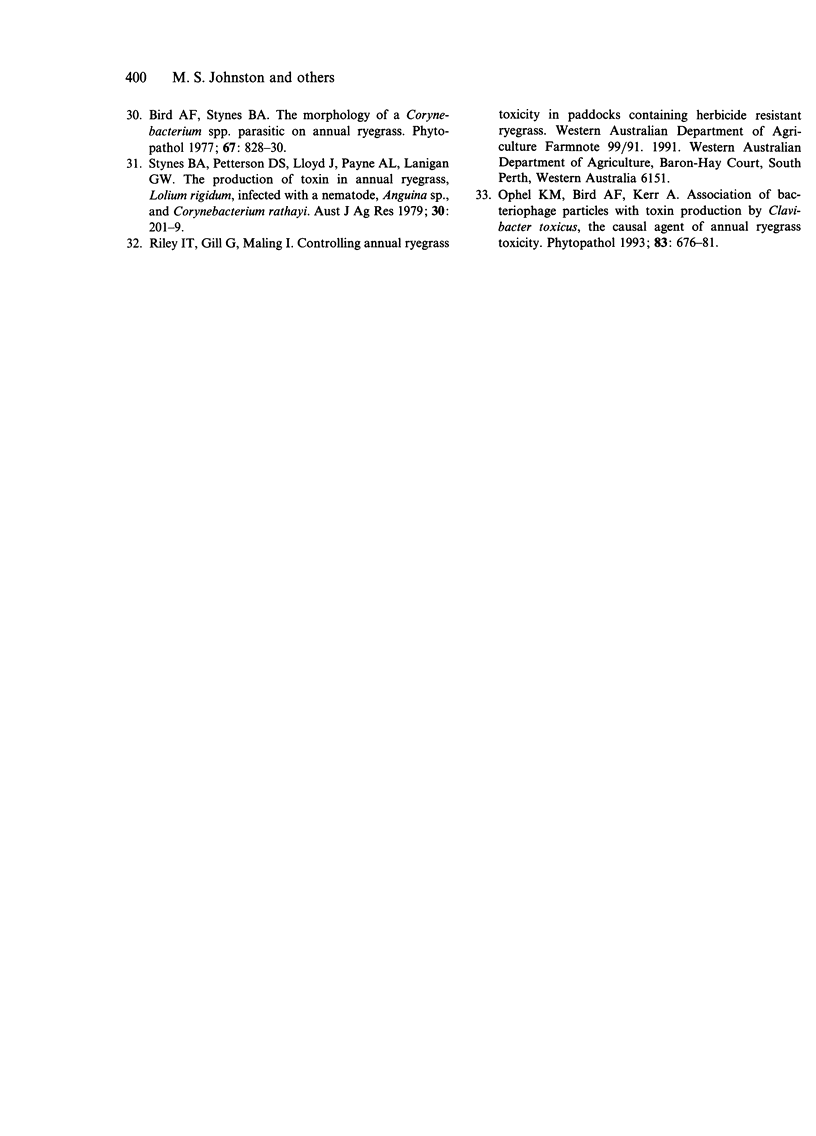
Selected References
These references are in PubMed. This may not be the complete list of references from this article.
- Davidson K. R. Leptospira hardjo infection in man associated with an outbreak in a dairy herd. Aust Vet J. 1971 Aug;47(8):408–408. doi: 10.1111/j.1751-0813.1971.tb09234.x. [DOI] [PubMed] [Google Scholar]
- Davis E. O., Curran G. E., Hetherington W. T., Norris D. A., Wise G. A., Roth I. J., SeaWright A. A., Bryden W. L. Clinical, pathological and epidemiological aspects of flood plain staggers, a corynetoxicosis of livestock grazing Agrostis avenacea. Aust Vet J. 1995 May;72(5):187–190. doi: 10.1111/j.1751-0813.1995.tb03187.x. [DOI] [PubMed] [Google Scholar]
- Eisenstein B. I. New molecular techniques for microbial epidemiology and the diagnosis of infectious diseases. J Infect Dis. 1990 Apr;161(4):595–602. doi: 10.1093/infdis/161.4.595. [DOI] [PubMed] [Google Scholar]
- McIntosh G. H., Thomas M. R. Toxicity of parasitised Wimmera ryegrass, Lolium rigidum, for sheep and cattle. Aust Vet J. 1967 Sep;43(9):349–353. doi: 10.1111/j.1751-0813.1967.tb04878.x. [DOI] [PubMed] [Google Scholar]
- Nei M. Estimation of average heterozygosity and genetic distance from a small number of individuals. Genetics. 1978 Jul;89(3):583–590. doi: 10.1093/genetics/89.3.583. [DOI] [PMC free article] [PubMed] [Google Scholar]
- Schneider D. J. First report of annual ryegrass toxicity in the Republic of South Africa. Onderstepoort J Vet Res. 1981 Dec;48(4):251–255. [PubMed] [Google Scholar]
- Selander R. K., Caugant D. A., Ochman H., Musser J. M., Gilmour M. N., Whittam T. S. Methods of multilocus enzyme electrophoresis for bacterial population genetics and systematics. Appl Environ Microbiol. 1986 May;51(5):873–884. doi: 10.1128/aem.51.5.873-884.1986. [DOI] [PMC free article] [PubMed] [Google Scholar]


